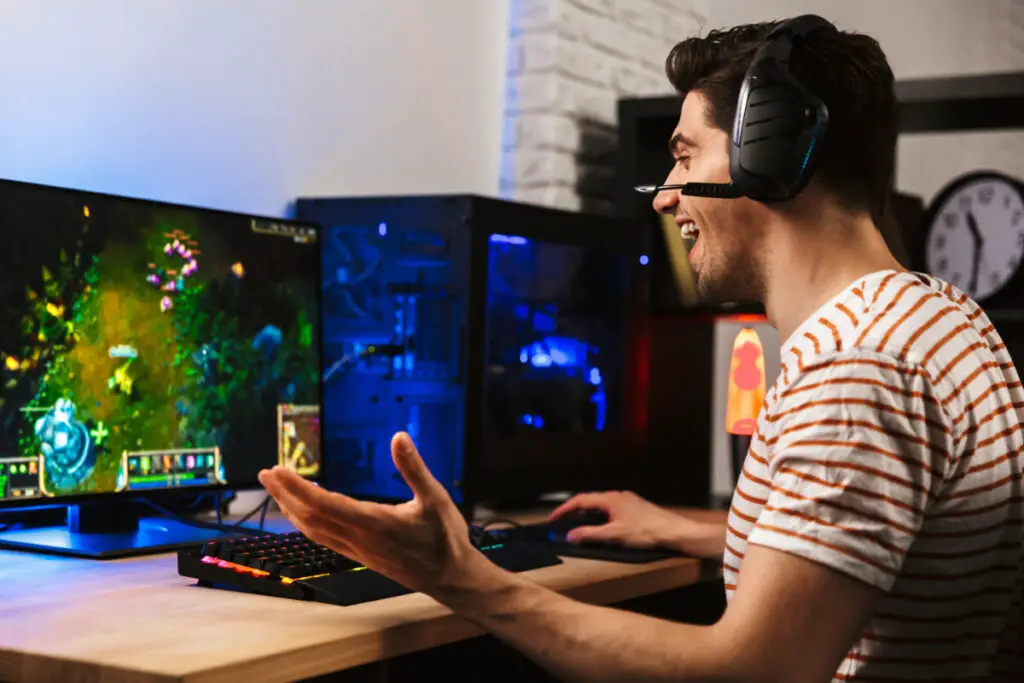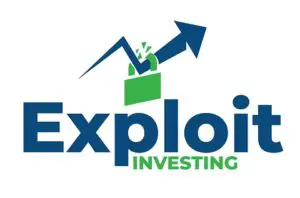
I use Steam nearly every day. It’s even running in the background as I type to you on this very computer. Steam is a platform for gamers to buy and store games and is nearly a monopoly in the PC space. So I wondered how I might invest in such a valuable company, and who even owns Steam?
Steam is owned by Valve, a private company, therefore is not publicly traded. Because the company is profitable without stockholders, they don’t have a need for excess capital. Their majority owner also believes shareholders conflict with consumer values.
Although Valve is a private company, there may be other ways to connect with its success while not directly investing.
While it may be disappointing that direct investment isn’t available to the public. Understanding why the company chooses this option helps consumers make conscious choices about how they interact and invest with Valve.
Gabe Newell and Why Valve Remains Privately Owned
Knowing the difference between private and public companies helps investors understand why Valve chooses to remain private, and not require outside investment to boost growth.
A public company sells its shares to the general public. When these companies choose to involve the public, they also provide investors with a vote in business operations. One main intention behind going public with stocks is to expand capital and the consumer reach.
A private company does not give the general public a say in the decisions that are made surrounding its stock. Gabe Newell, majority owner, has made it clear that this is the main reason he chooses to keep Valve private. He has stated the following.
“Any bad decision I ever see out there is because somebody created this different customer that was whoever funds them, and not the consumer of the product.”
Gabe Newell
Newell’s philosophy is that the best investors are not ones who are purchasing stock because they want to make money, but the actual consumers that the games are created for.
While they are not investors by definition, Valve feels their company better serves its consumers by keeping outsider funds and opinions from changing their products and services.
While private companies don’t sell stock to the general public, they are not without stock. Generally, this stock is held by the owners themselves, and occasionally a few select large investors, like venture funds. However, Valve remains private, and much of the stock is owned by Newell.
Forbes speculatively reports that Newell owns 50% of the company, but it is unclear who else might have a shares of the company.
Who Owns the Other 50% of Valve?
Valves ownership is complex and may involve many different shareholders that include:
- Cofounders
- Employees
- Outside investors.
Many employees are awarded shares in the private company as part of their payment structure. Its thought that some of the biggest shareholders are many of the early executives.
Two executives who may own a substantial number of shares in Valve include Scott Lynch and Doug Lombardi.
Are Any Aspects of Valve Available for Investment?
Valve is not publicly traded, and because of this, it is impossible to publicly invest in games such as Half-Life, Team Fortress 2, and Artifact, among others. Steam is a platform where people can play games and connect while playing. This aspect of Valve is also not available for public investments.
Since Valve is not available to the public as an investment option, creativity must be applied to allow investors to achieve their goals while finding other ways to support the company.

Equity Zen is a website dedicated to bringing private shares to the public. If any insiders decide to sell shares through this platform you can potentially invest in the company.
Alternative Investments to Valve That Support Gaming
While one can’t directly invest in Valve, those who support the company can invest in stock that is similar to what made them successful. While this option is indirect, it accomplishes a similar outcome to investing in Valve itself, which is likely supporting stocks in gaming companies and their products.
This might look like investing in other gaming companies such as Activision Blizzard or even investing in companies that Newell has been involved with in the past, such as Microsoft.
Warren Buffet purchased Activision Blizzard stock as a way to arbitrage the buyout price Microsoft offered with the actual share price of Activision Blizzard.
Some other publicly traded companies with games sold through Steam Include:
- CD Project Rekt
- Capcom
- Take-Two Interactive
- Electronic Arts
- Ubisoft
- Square Enix
Note: Many of the companies listed above are international and require investing on international stock markets.
There are likely countless others and potentially more every day as the industry expands. But perhaps the best way for consumers to invest in Valve is to simply continue to support their games and platform.
Supporting the company while allowing it to retain financial and creative control over its products serves both the consumers and the company.
Consumers will continue to receive products and services from independent game developers that successfully provide quality products over time, and the company retains control over its values of how to maintain those products and services.
Will Valve Continue Its Success?
Knowing Valve’s history, and what they are doing with the company today, can serve consumers by helping them know whether or not the company is worth whatever indirect investment they can give.
Valve was founded in 1996 by Gabe Newell and Mike Harrington; the latter left the company in 2000 to pursue other endeavors. Gabe Newell, as the main owner of the company, currently has a net worth of $7.45 billion. While this has increased from his net worth in early 2020, it’s lower than his net worth in 2021.
During that year, it spiked to $9.67 billion and has steadily decreased down to what appears to be an average of $7.5 billion in the last few years. His net worth matches Valve’s own, which was reported by Bloomberg in May 2022 to be $7.7 billion.

It seems that Newell remains confident in Valve’s own products and finances, specifically in the platform Steam. The gaming platform is a large source of revenue for Valve, and the company doesn’t see a need to expand games to fit X-Box game consoles.
While the company has worked with Nintendo in the past, it has recently developed its own version of the popular Switch, called Steam Deck, that brings the games from the Steam platform to a handheld device. The device is still fairly new to the market, which so far seems to have been well-received by Valve’s consumers.
Additionally, in its endeavors to broaden its technology, Valve helps independent developers release new games each year. Valve is not short on projects and seems to constantly look for ways to broaden the products available to customers without creative interference.
Valve is consistent in its efforts to provide the best products to its consumer base, and that is important in bringing value to a company.
